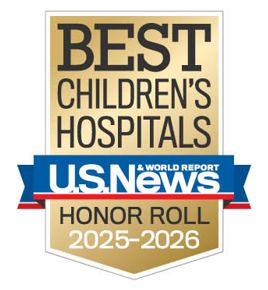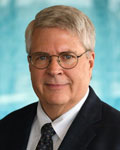About Us
Our mission is to improve the health of children through the provision of high-quality, coordinated programs of patient care, education, research and advocacy.
Department Leadership
Stephen R Daniels MD, PhD, MPH
Professor and Chair, Department of Pediatrics
Pediatrician-in-Chief, Children's Hospital Colorado
University of Colorado School of Medicine

2025-2026 Children's Hospital Colorado Accolades
We rank among the best in all recognized specialties
Children’s Hospital Colorado has proudly secured a position among the Top 10 children's hospitals in the nation, with five specialties recognized in the Top 10.
| Specialty | Ranking |
| Cardiology and Heart Surgery | #2 |
| Diabetes and Endocrinology | #3 |
| Cancer | #4 |
| Pulmonology | #4 |
| Gastroenterology and GI Surgery | #7 |
| Neurology and Neurosurgery | #13 |
| Neonatology | #14 |
| Nephrology | #25 |
